Close your eyes and imagine this: I’m sitting in the Chelsea branch of Gail’s on a crisp winter morning writing this blog post on my MacBook. I have a skinny oat latte and a banana, because although the pastries look delicious, they’re not gluten free and I bloat at even the sight of wheat. I’m wearing a skinny jersey turtleneck and my Fiorucci Tara jeans cinched in at my tiny waist to emphasise just how much weight I’ve lost.
Girl. As if.
In reality, I’m crunched up on my bed looking down past my triple chin at my six year old HP laptop that took 30 minutes to turn on. I’ve eaten half a packet of biscuits with my morning ‘value’ filter coffee, and I’m in my pants and my favourite Oxfam bargain cardigan.
And just for the record, EVEN in my fantasy, I couldn’t resist a Gail’s pastry. They’re just too good.
We all have a fantasy, but they’re fickle, often equal parts aspirational and destructive. We need to manage our expectations.
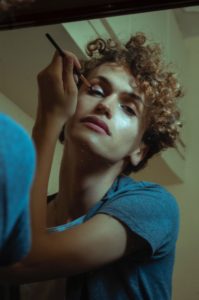 Something I find so deeply problematic in the LGBTQIA+ community is the persistent need to categorise, label and define, particularly when it comes to our bodies. For a community that’s ‘all accepting,’ we can be anything but. Some of our queer specific dating apps are designed to make us ultimately isolate one another. They promote internalised homophobia, transphobia, racism and body shaming. I’ve come across profiles that say ‘No Fats, No Femmes, No Blacks and No Asians.’ It’s disgusting, do we really hate ourselves that much?
Something I find so deeply problematic in the LGBTQIA+ community is the persistent need to categorise, label and define, particularly when it comes to our bodies. For a community that’s ‘all accepting,’ we can be anything but. Some of our queer specific dating apps are designed to make us ultimately isolate one another. They promote internalised homophobia, transphobia, racism and body shaming. I’ve come across profiles that say ‘No Fats, No Femmes, No Blacks and No Asians.’ It’s disgusting, do we really hate ourselves that much?
The ‘Tribes’ that these apps promote facilitate and spawn further notions of self-loathing. Twinks, Jocks, Bears, Otters, Femmes… to name a few, are categories that define aspects of our physicality. For example, if you’re a twink, you’re typically skinny, blonde and shaved head to toe. If you’re a bear, you’re muscular, brunette and hairy head to toe. I could go on.
For me as a non-binary (he/his/they/them) individual I often feel that I don’t fit into any category, and quite frankly I don’t want to. In saying this, you sometimes can’t help but let the small minded people that operate within these suffocating tribes get the best of you.
There have been times where I’ve tried to ‘masc it up’ to try and hide my natural flamboyance and femininity. I tried to grow out my facial hair in an effort to fit in with the Bears and Otters. I’ve dressed subtle on first dates to appear less… gay? It doesn’t make sense and only leads to dizzying feelings of dysphoria.
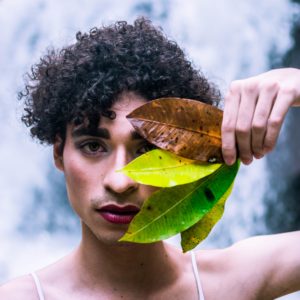
Feeling dysphoric about our bodies is not breaking news by any stretch, and it doesn’t just apply to the LGBTQIA+ community. There are often many similarities in the way that queer men and cis women view their bodies for example. However, although us gays, girlies and our bodies are important, there needs to be more love, attention and support for trans bodies.
For decades now, trans folk and their bodies have been misunderstood, ridiculed and alienated. In 2020 and 2021 this is a bigger issue than ever.
Last year The Trevor Project, a non-profit organisation who specialise in suicide prevention among the LGBTQIA+ community, reported that 60% of young trans and non-binary individuals engage in self harm, and 40% of those surveyed seriously contemplated ending their own lives. Imagine then throughout history, how many undocumented transgender and gender non-conforming people we’ve lost. It’s harrowing.
In 2021 as the pandemic continues, this may prove harder than usual for trans youth as many will be isolated from their community, safe places and support systems. Home isn’t always a safe place either when there is still so much misinformation and misunderstanding surrounding transgender bodies.
As an ally, what can you do to help?
Do your research. Educate yourself. Donate.
Listen to podcasts like ‘NB: My Non-Binary Life’ by the BBC. Check out the Mermaids UK organization for their amazing charity work for trans and non-binary youth. Google Munroe Bergdorf and read about her story.
Check yourself too. The thing I hate hearing THE MOST when people are referring to my trans brothers and sisters is: ‘Oh, they’re a man but really they’re a woman’ and vice versa. Or ‘I would’ve never thought they were a guy before! They’re so feminine.’ This kind of attitude towards the trans community is super disruptive and leads to more feelings of dysphoria. Treat trans people with respect. I can’t speak for the entirety of the trans community, but they don’t need your validation on whether or not they’re ‘passing.’
If you’re unsure how a trans or non-binary person identifies, you can politely ask them, just make sure it’s in a private and non-threatening tone and environment. In addition, if you accidentally use the wrong pronouns (yes, especially if it’s in a group setting) immediately correct yourself and correct others too.
Yours sincerely, a non-binary badass.
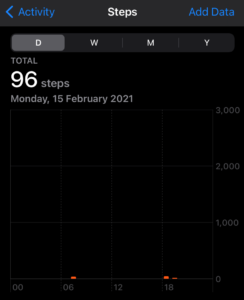

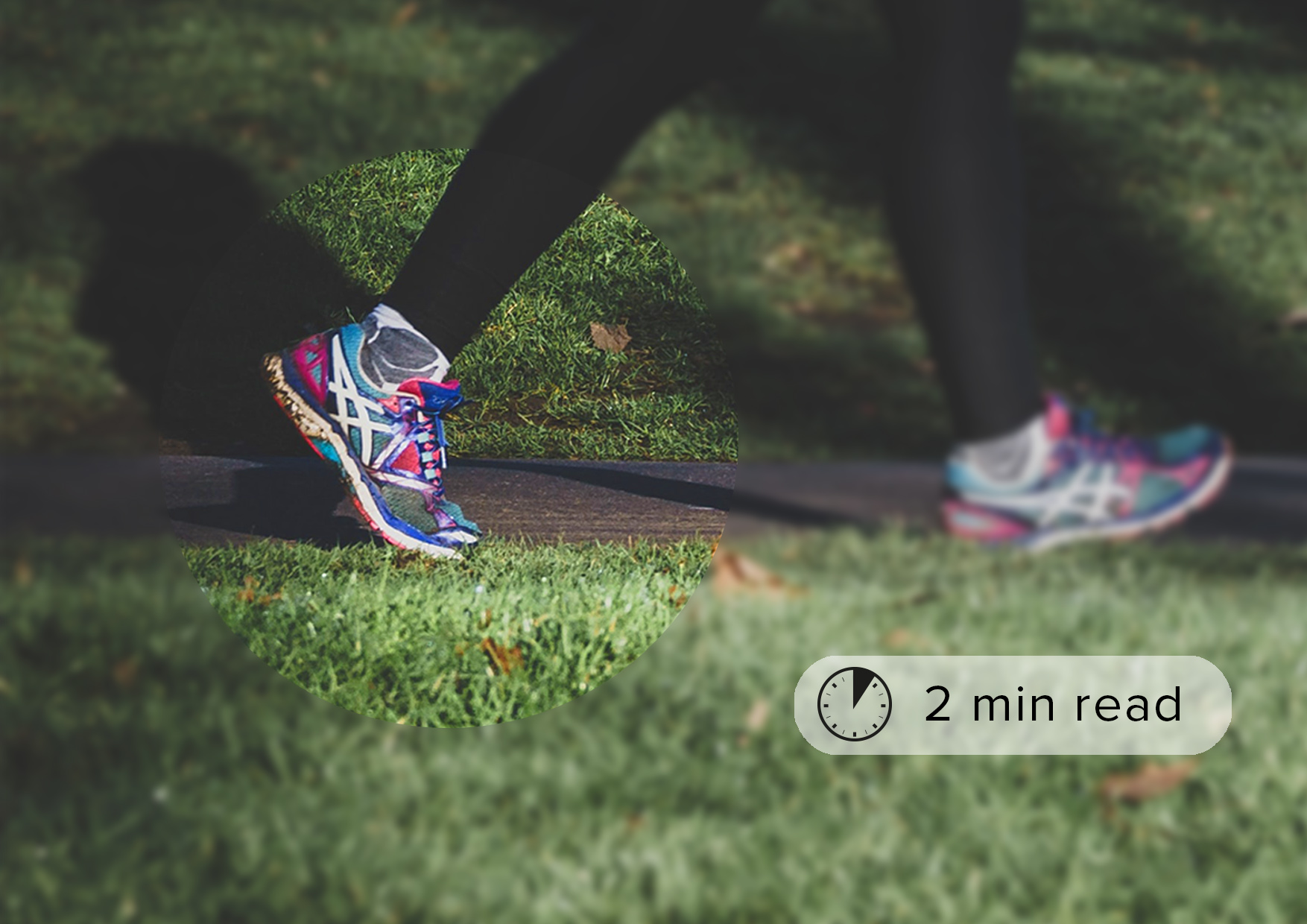
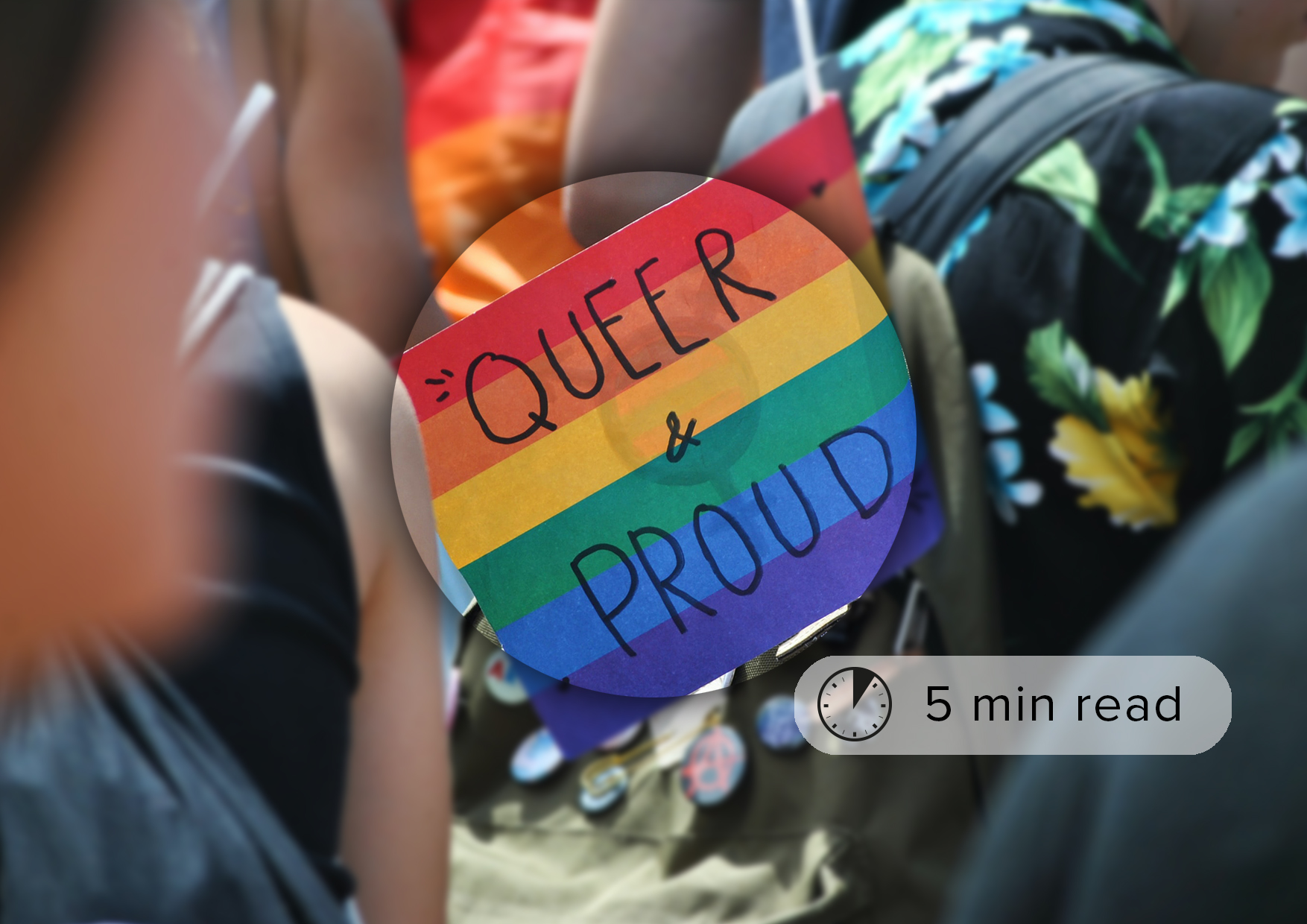
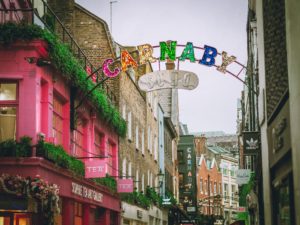 If you get on the 14 bus around 10am, it’ll take you straight into Piccadilly once the morning commute has passed its peak. You can then slink off the bus and immediately get lost in the tiny side streets between China Town, Piccadilly and Soho. If you go in spring, the mornings are dewy, fresh and bright meaning it’s the perfect weather to sit in Golden Square and have an Oat cappuccino from the Veggie Pret on the corner dahhling.
If you get on the 14 bus around 10am, it’ll take you straight into Piccadilly once the morning commute has passed its peak. You can then slink off the bus and immediately get lost in the tiny side streets between China Town, Piccadilly and Soho. If you go in spring, the mornings are dewy, fresh and bright meaning it’s the perfect weather to sit in Golden Square and have an Oat cappuccino from the Veggie Pret on the corner dahhling.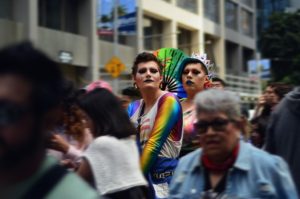 Number one – although it was probably mine and Sue’s obvious flamboyance that caught the lads attention, our girlfriend who had been with us was equally ‘in trouble.’ It made me realise that if these ignorant homophobes had no respect for queers, they most certainly didn’t have any respect for women either. In that moment I saw firsthand the solidarity between women and queer folk – shared experiences of belittling and terror that both parties have, out of necessity, become accustomed to. I am so grateful for the woman in my life, they have given me strength, inspiration and motivation to be the person I am today. Many women share our queer spirit and for that they are forever a part of our community.
Number one – although it was probably mine and Sue’s obvious flamboyance that caught the lads attention, our girlfriend who had been with us was equally ‘in trouble.’ It made me realise that if these ignorant homophobes had no respect for queers, they most certainly didn’t have any respect for women either. In that moment I saw firsthand the solidarity between women and queer folk – shared experiences of belittling and terror that both parties have, out of necessity, become accustomed to. I am so grateful for the woman in my life, they have given me strength, inspiration and motivation to be the person I am today. Many women share our queer spirit and for that they are forever a part of our community.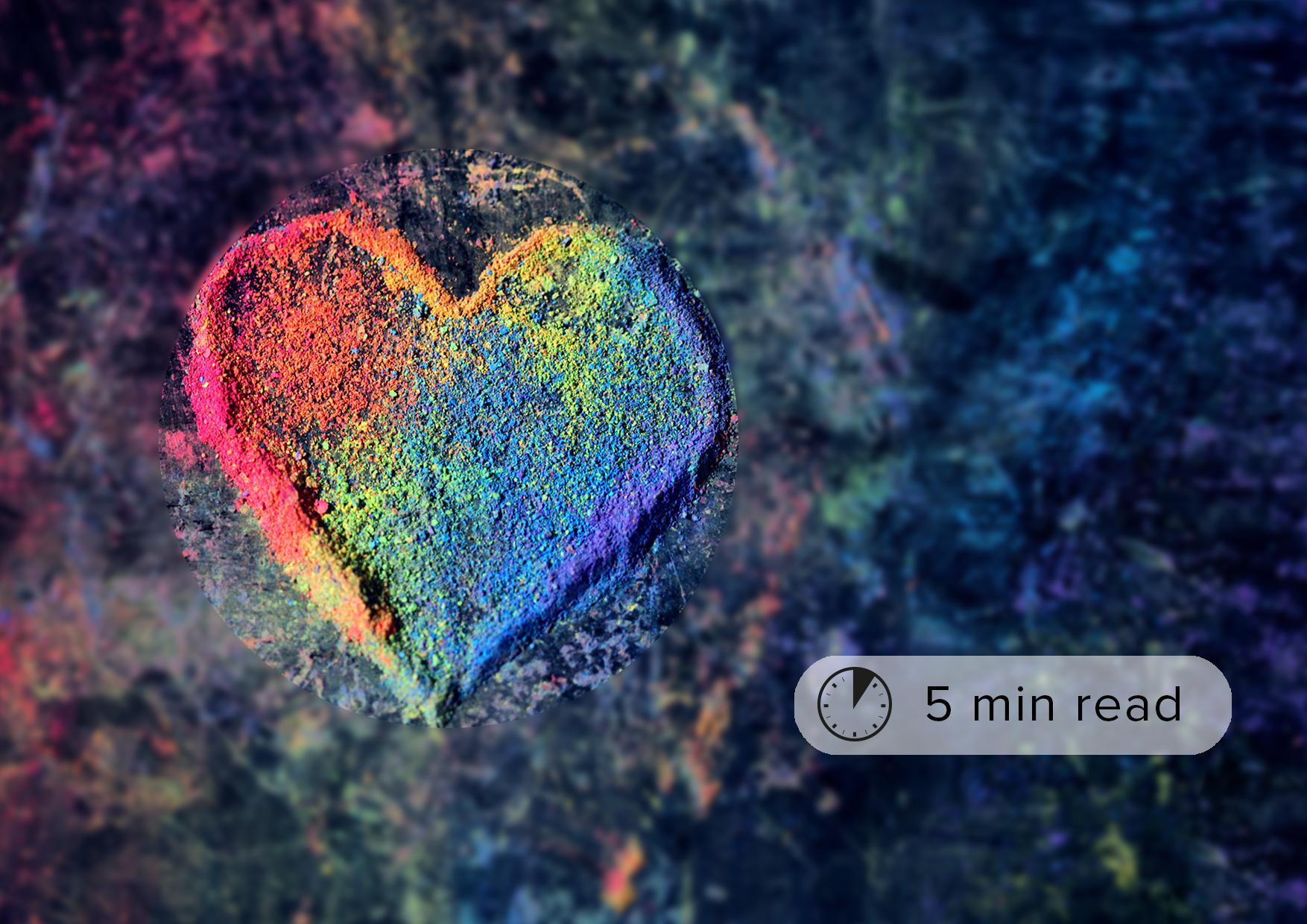
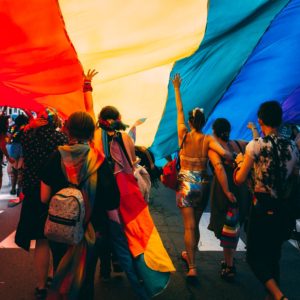 Being an ally can be in equal parts easy and difficult. Throw into the mix being a parent too and you can imagine the confrontational situations you suddenly find yourself in. Staring unflinchingly into the eyes of complete strangers who openly laugh at your child. Questioning what right those groups of adolescents have to threaten and insult him. Challenging your close friends and family members to address their unconscious bias and re-educate themselves.
Being an ally can be in equal parts easy and difficult. Throw into the mix being a parent too and you can imagine the confrontational situations you suddenly find yourself in. Staring unflinchingly into the eyes of complete strangers who openly laugh at your child. Questioning what right those groups of adolescents have to threaten and insult him. Challenging your close friends and family members to address their unconscious bias and re-educate themselves.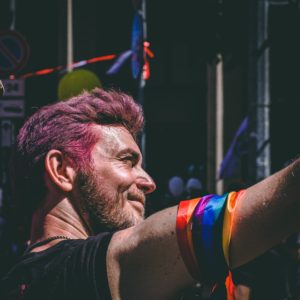 The easy part has always been from a personal perspective – understanding and developing my own relationship with the queer folk in my life. Whether that’s been celebrating with friends as they committed to each other in a civil partnership before gay marriage was even legalised, or providing a safe haven so my kids could grow into their best authentic selves (read: supporting my son’s choice to wear cherry-red Mary Janes at nursery and painting his toenails sparkling silver every summer, although I do reserve the right to stop him talking about Mariah Carey on every. Single. Facetime call . . .)
The easy part has always been from a personal perspective – understanding and developing my own relationship with the queer folk in my life. Whether that’s been celebrating with friends as they committed to each other in a civil partnership before gay marriage was even legalised, or providing a safe haven so my kids could grow into their best authentic selves (read: supporting my son’s choice to wear cherry-red Mary Janes at nursery and painting his toenails sparkling silver every summer, although I do reserve the right to stop him talking about Mariah Carey on every. Single. Facetime call . . .)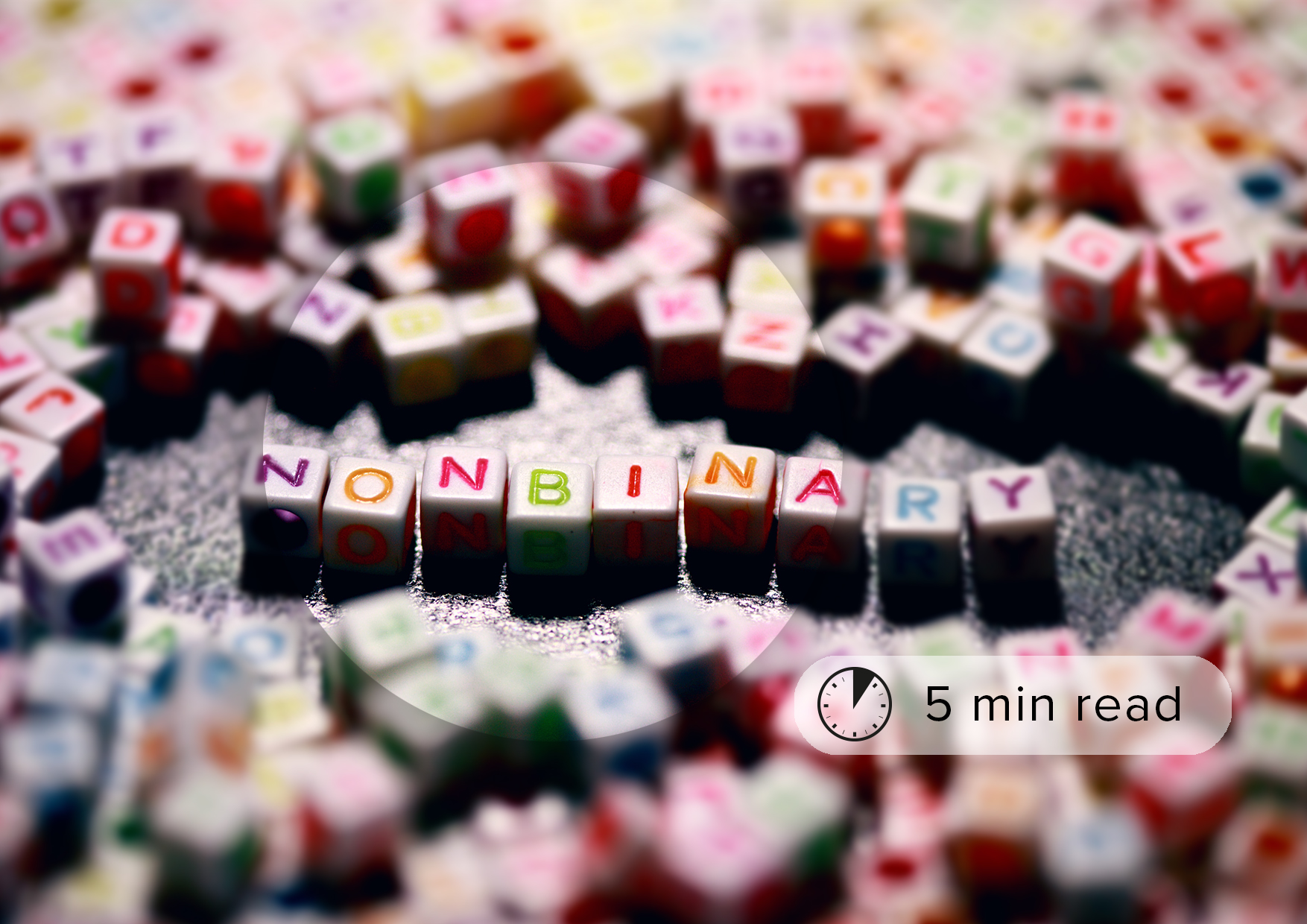
 Something I find so deeply problematic in the LGBTQIA+ community is the persistent need to categorise, label and define, particularly when it comes to our bodies. For a community that’s ‘all accepting,’ we can be anything but. Some of our queer specific dating apps are designed to make us ultimately isolate one another. They promote internalised homophobia, transphobia, racism and body shaming. I’ve come across profiles that say ‘No Fats, No Femmes, No Blacks and No Asians.’ It’s disgusting, do we really hate ourselves that much?
Something I find so deeply problematic in the LGBTQIA+ community is the persistent need to categorise, label and define, particularly when it comes to our bodies. For a community that’s ‘all accepting,’ we can be anything but. Some of our queer specific dating apps are designed to make us ultimately isolate one another. They promote internalised homophobia, transphobia, racism and body shaming. I’ve come across profiles that say ‘No Fats, No Femmes, No Blacks and No Asians.’ It’s disgusting, do we really hate ourselves that much?
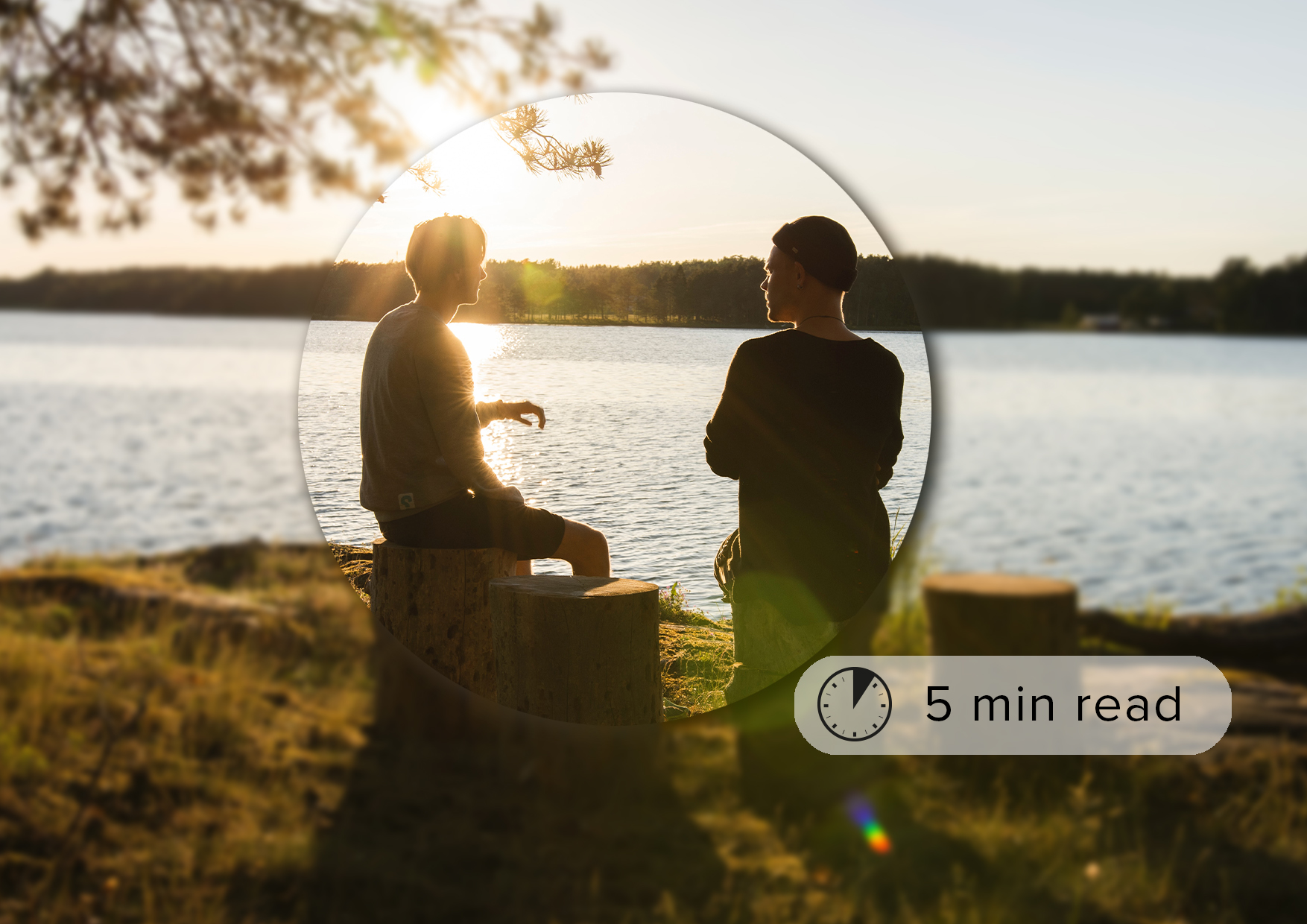
 Prince William, a well-known advocate for raising the awareness of mental health, filmed a BBC
Prince William, a well-known advocate for raising the awareness of mental health, filmed a BBC 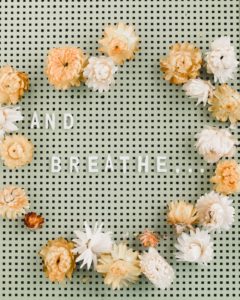 We might not be able to talk face to face at the moment, but it doesn’t mean we can’t all make a difference. Time to change will be holding a first ever
We might not be able to talk face to face at the moment, but it doesn’t mean we can’t all make a difference. Time to change will be holding a first ever 